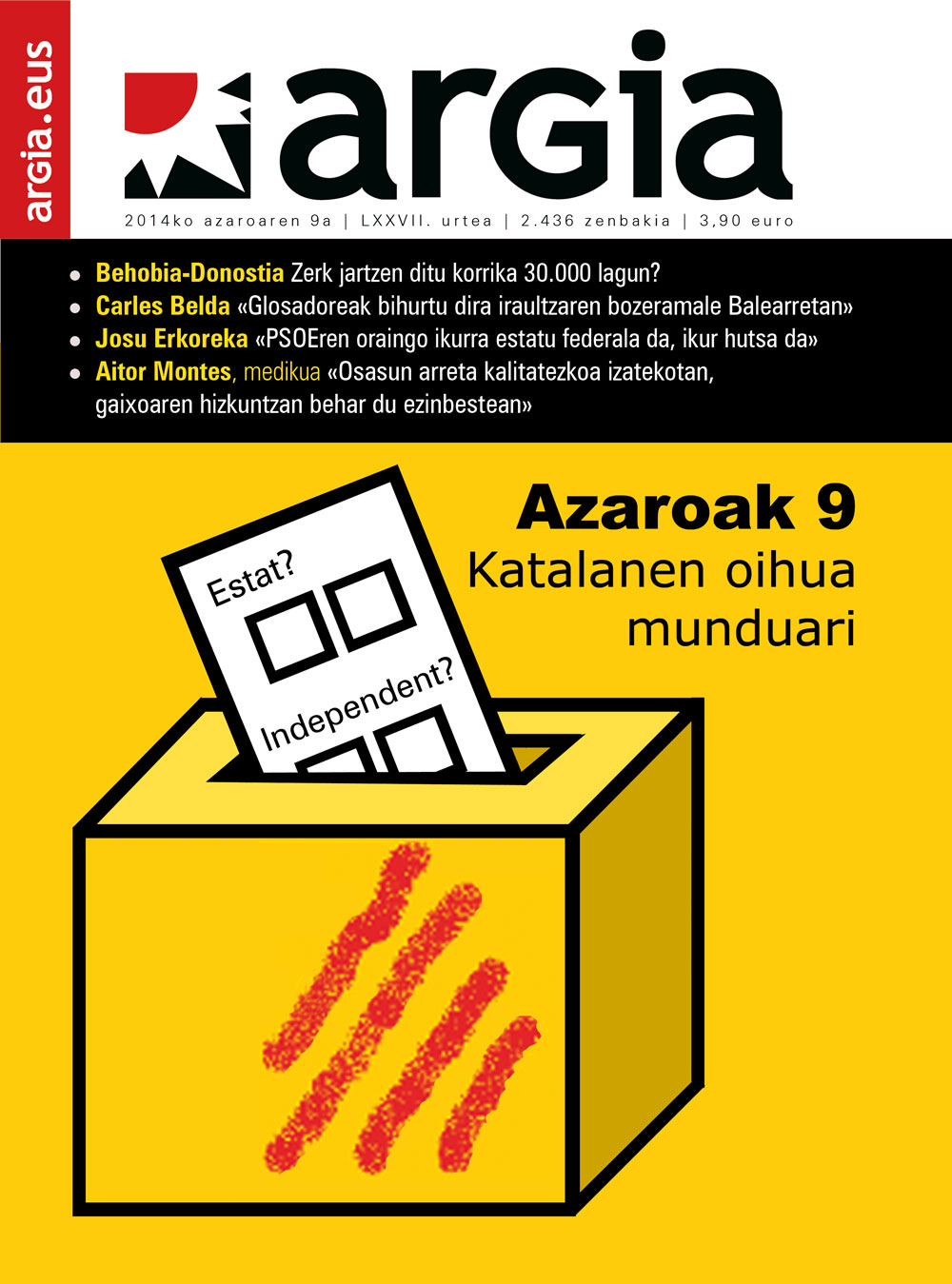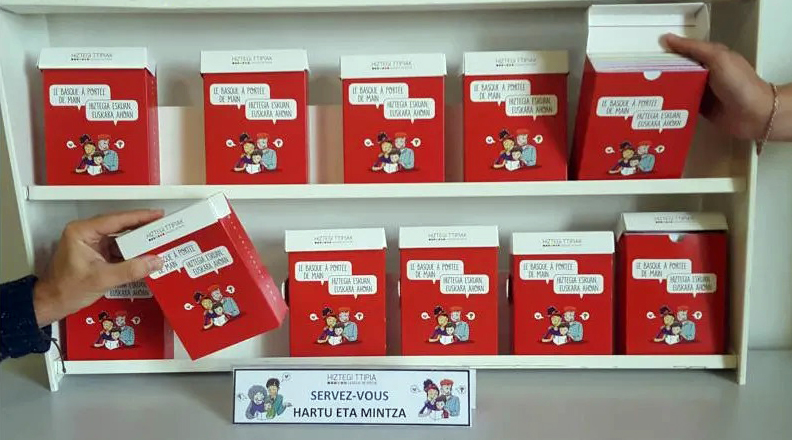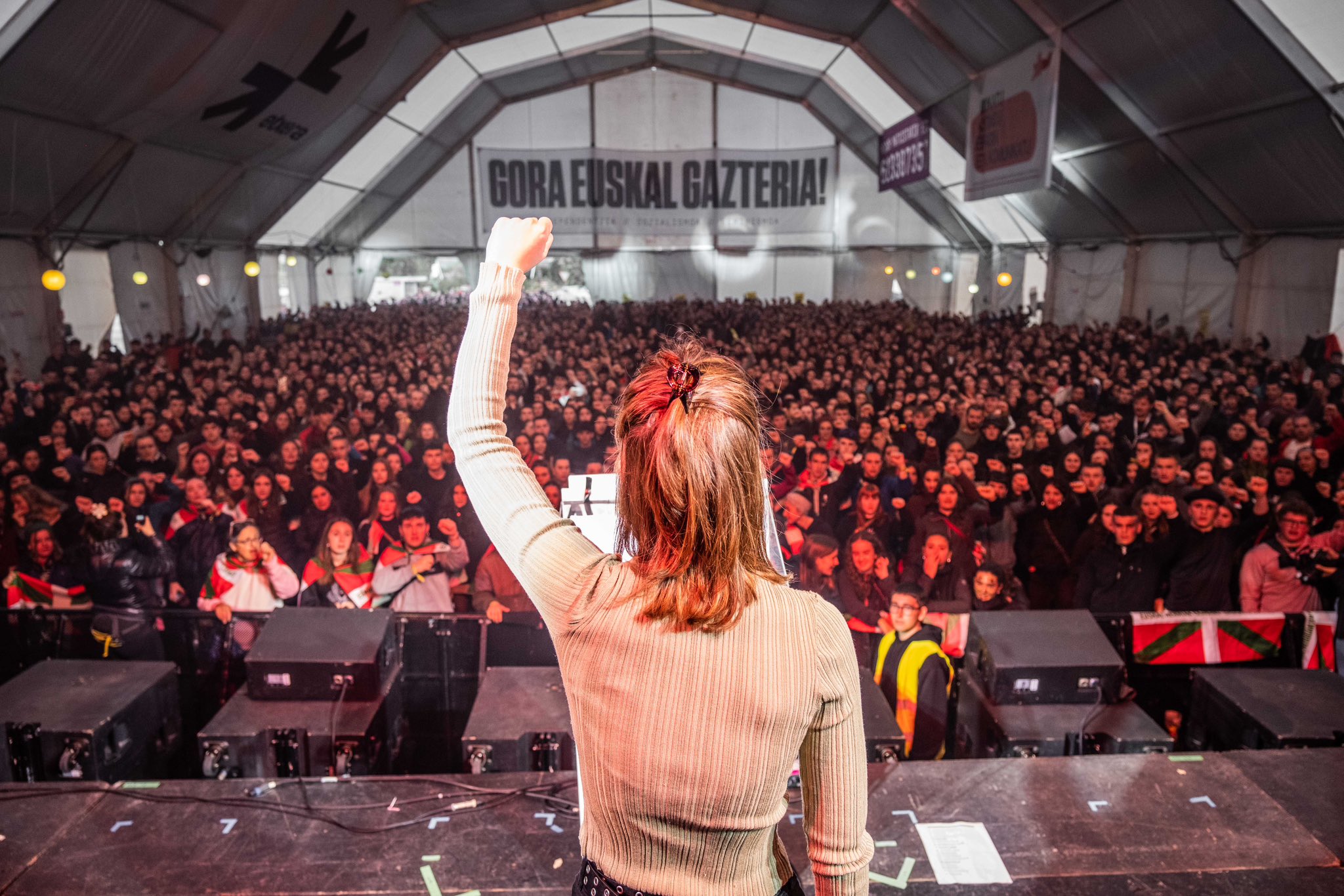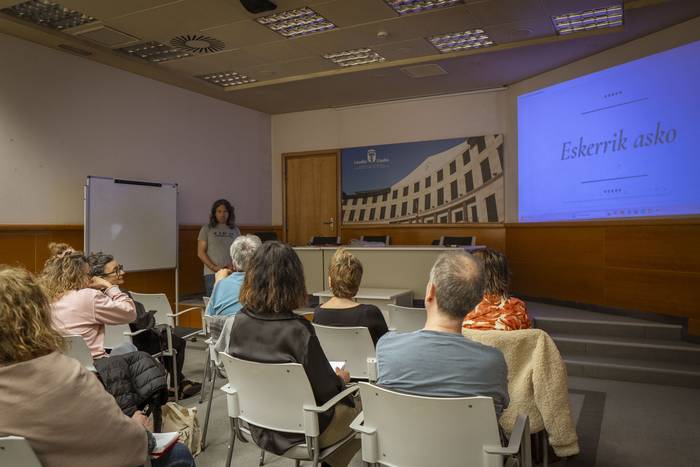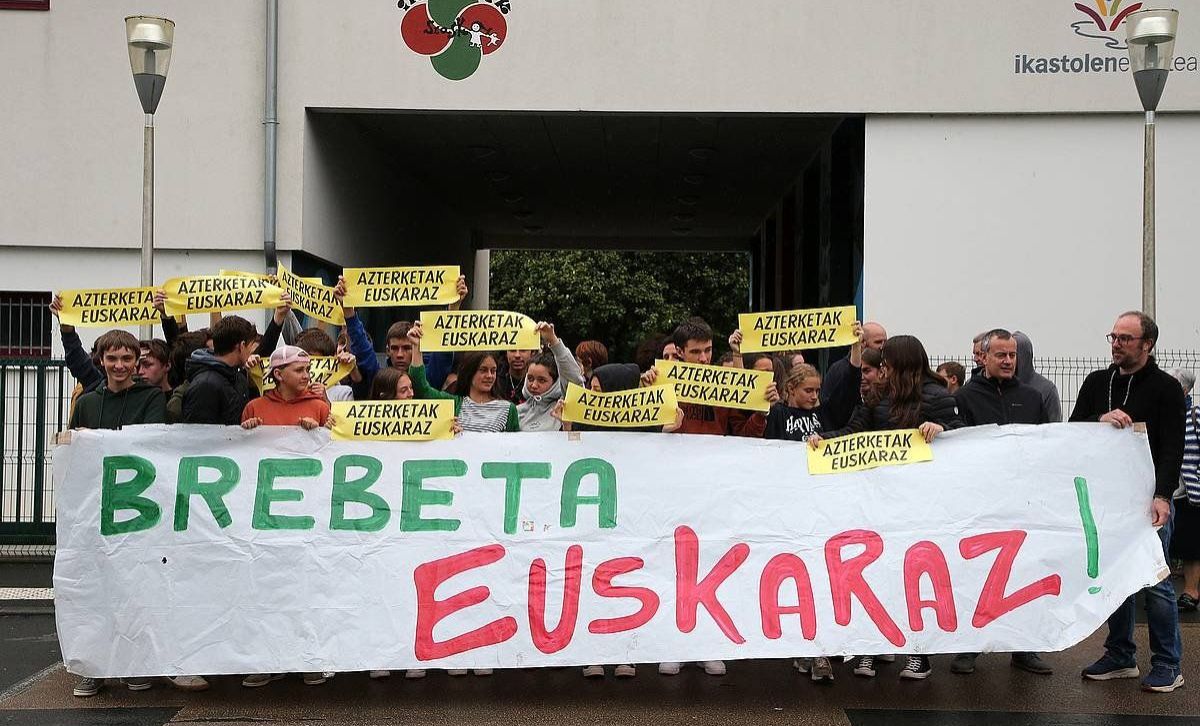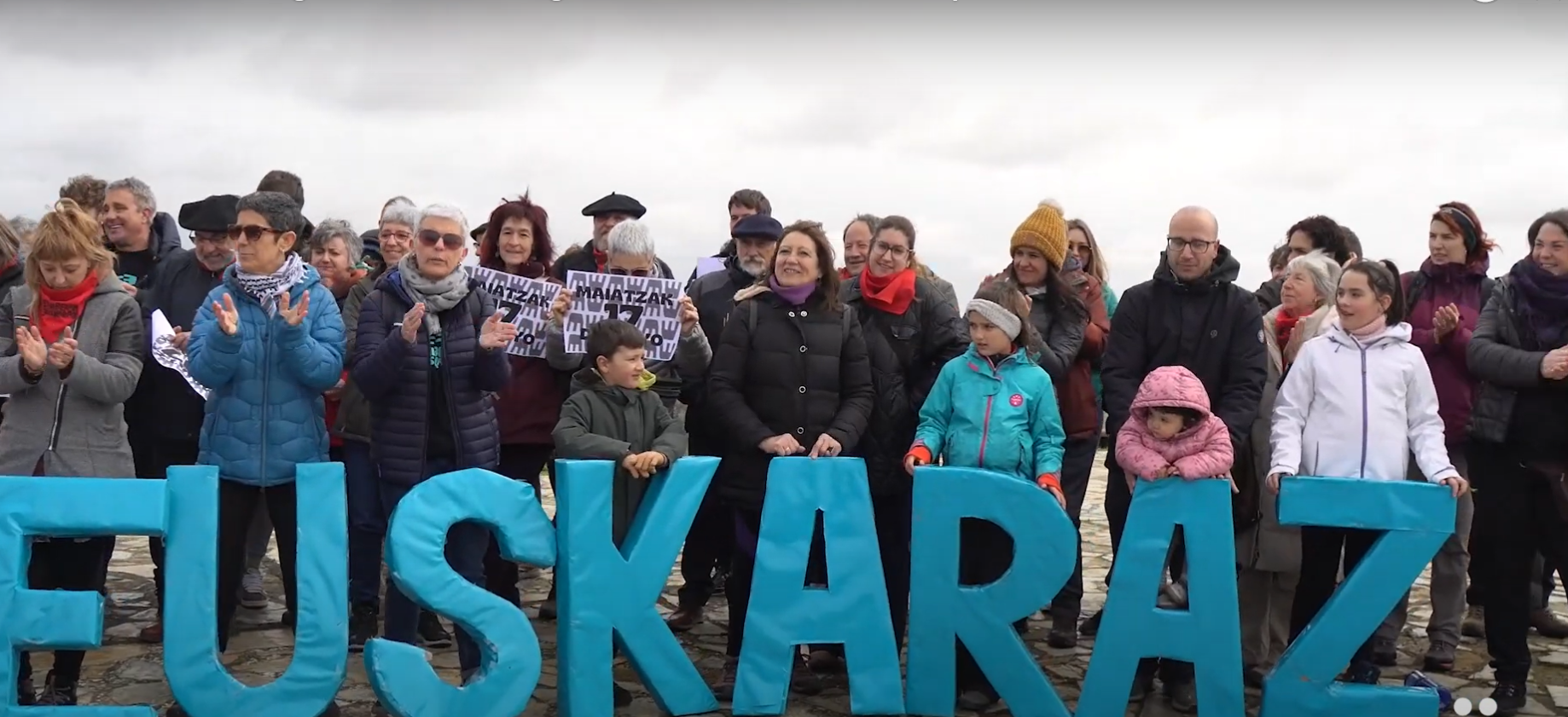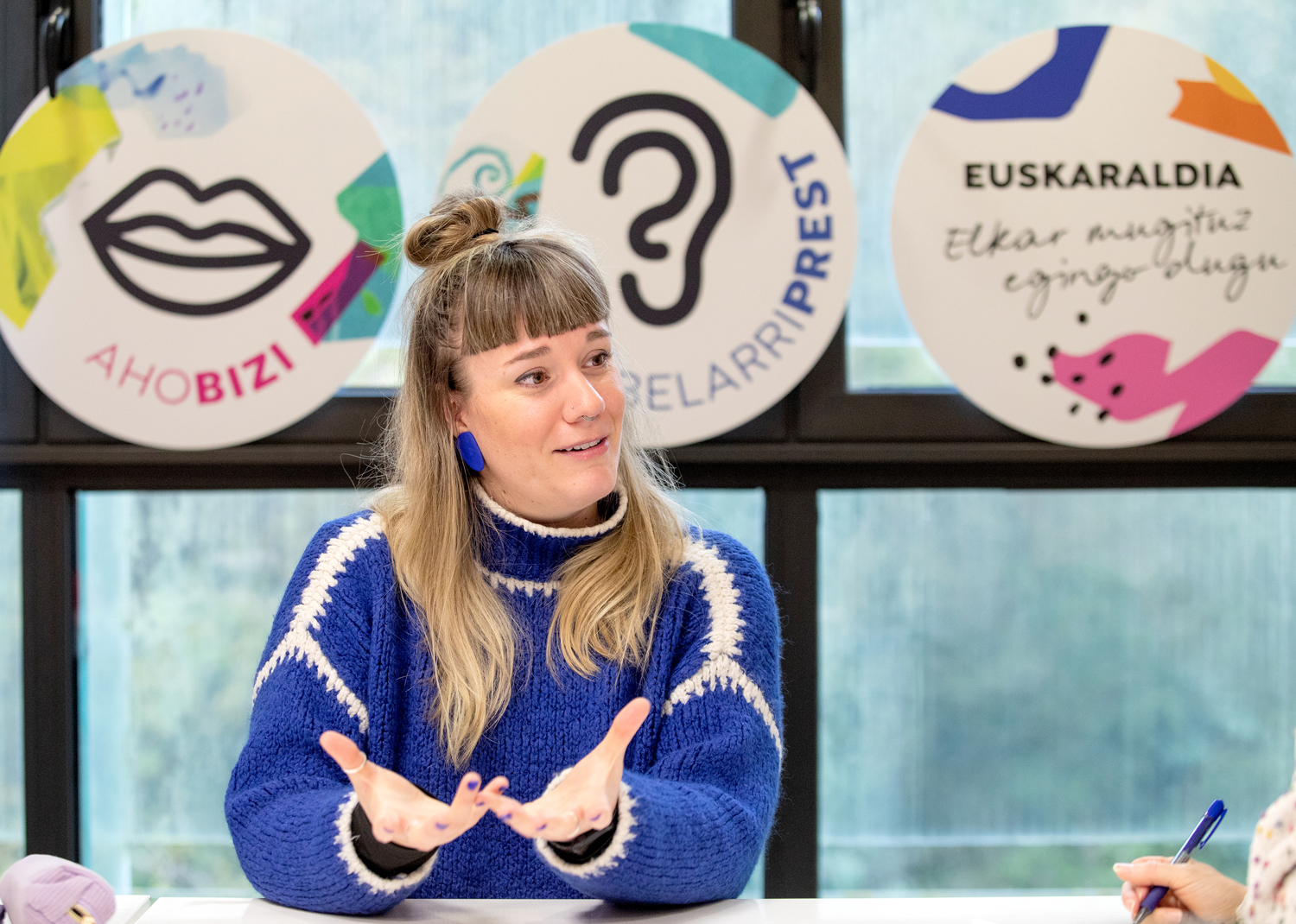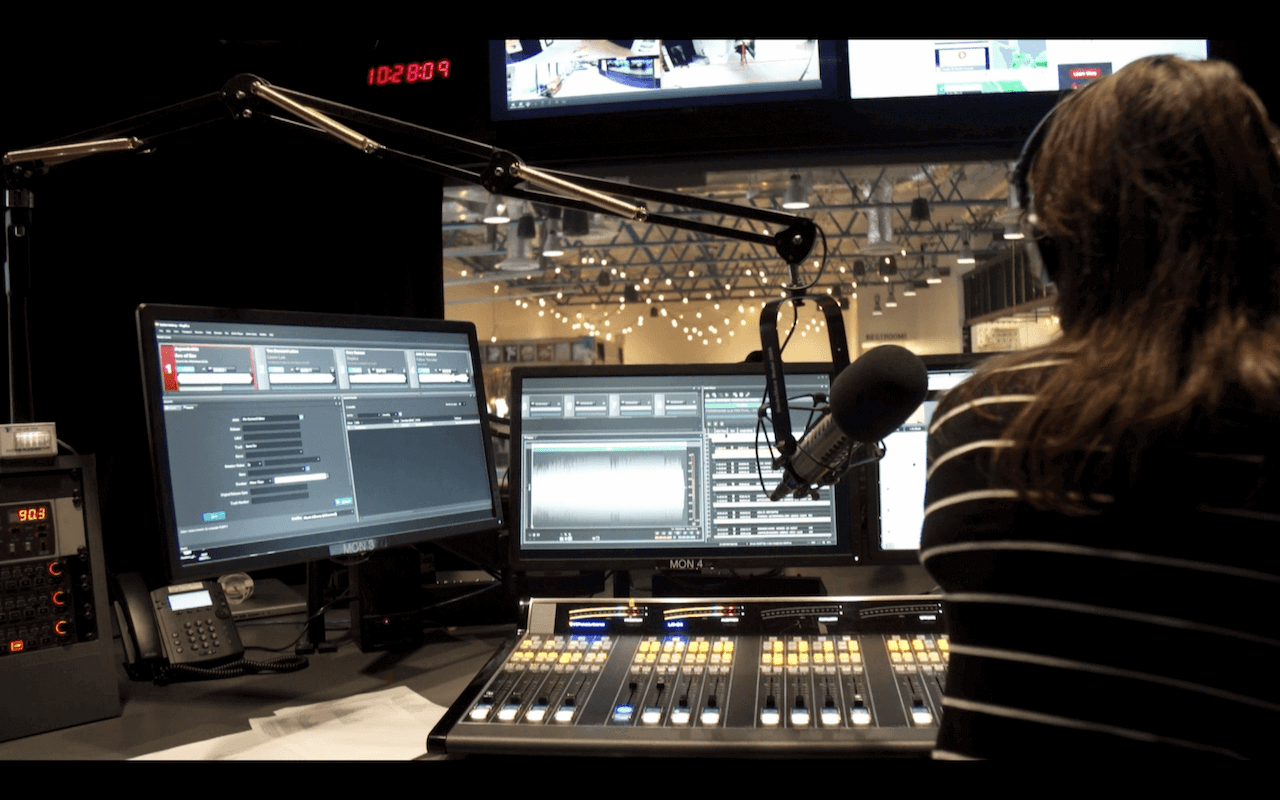"The key is to get the medical history in Euskera, that the citizens ask for it"
- The doctor of Galdakao, Aitor Montes, urgently sees the Basque language as the working language in the Basque Country of Osakidetza. Montes is a family doctor from Aramaio and, beyond verbal relations, needs to euskaldunify what is written. In his opinion, the key is to translate to Euskera the clinical history that gathers the patient's health trajectory.
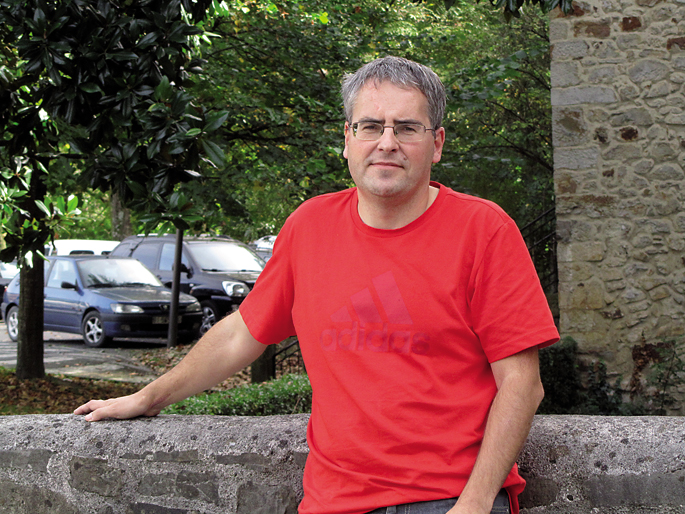
It's been the first time you've been able to collect the results of an X-ray in two languages.
Yes, we received them three weeks after the request. In addition, the report has come in both languages from the very beginning. It has happened in Donostia, for example, that the patient sees the discharge report in Spanish and requests it in Euskera. The translation took ten days to arrive. The X-ray is different. As it comes in bilingual, the Basque language is, in addition to the language of service, the working language. The aim should be for Osakidetza to provide the results of all bilingual imaging tests.
No need to apply.
That's it. It is not necessary for the patient or doctor to request it. Osakidetza is a public body and its writings must necessarily be in the two official languages. This is dictated by European, Basque and Spanish legislation.
If so, did you propose to the patient to request the results in Euskera?
No, no. I have to comply with the law. I work in the public institution and I have to comply with the code of ethics and the law of doctors; I can't violate the law.
The Basque plans, the laws... are there. You say nothing new is needed.
With what we have, more than enough. Above all because of the high-level European regulation, which is binding, which must be complied with and adhered to. If Osakidetza does not offer us this, we must ask for it. That's my message; the Basque people, ask for it. Go to the health center, Camino de Santiago, Mirador... Request reports of all complementary tests in bilingual or only in Basque if you wish. Not only users, but also health workers have to request bilingual test reports. Our duty is to improve the service we provide to patients.
He has also asked that the results of the blood tests be collected in Basque.
We're still waiting. I know that you have to adapt the computer applications for that. He asked, and not only me, but also the Bizkaia Medical Association. If they ask you from the private, they give you the tests in Euskera. In private yes, but in public no. Osakidetza is 31 years old.
Would it be a lot of work for Osakidetza?
By default, no. We would need training in technical Basque. That is the responsibility of the organization. The other way is translation. For this, it may be necessary to have more translators or Basque technicians, also the organization’s responsibility. On the other hand, they will tell you that “the technical Basque is very difficult.” No. The medical language is not received from day to day, nor is it in Spanish. You study at the hospital, other doctors. You read the traumatologists' reports, and you learn that. Also in Basque, we would take the course and learn the technical Basque of specialists in mutual relationship. Easily.
Can the number of Basque workers in Osakidetza be an obstacle?
Yes, because we are few. The linguistic profile is found in about 40% of the nurses. Only 25% of doctors. On the other hand, health workers over 45 years of age are not required to prove the required linguistic profile. But that's where we have an advantage. The average age of health workers is 55 years. So, in five or ten years' time, many will retire, and if you instead get bilingual staff, you are already, you have managed to get Osakidetza to be used in half.
So, with the new generations, is Osakidetza going to be Euskaldunizar for himself?
The Basque workers will come, but if the working language is Spanish, like sugar in coffee, they will also melt in an erdaldun environment.
How then can the environment be used?
The results of the complementary tests have to be sent in Basque. The computer applications will be put in Basque, the training will be taught in Basque and then circuits will be created in Basque. That is to say, from the first attention, bilingual quotas should be created. If in a village half of the population wants health care in Euskera, the quotas will be the Euskaldunes. Gradually, Basque patients should be channeled to these doctors. Then, identify, train and introduce Basque specialists into the circuit. The oral and written relations in these circuits would be in Basque.
You say it's a matter of will.
You too? Osakidetza has the responsibility, yes, but it is curious that people do not seek health care in Basque.
Have the complaints been addressed to oral care?
At most. In the normalization of the Basque Country, important steps have been taken in education, in the media... We have achieved these areas. Also in the public administration, slowly, but in many municipalities the workers are bilingual. In health care, however, no one says anything despite being Euskaltzale and having received the health analysis in Spanish.
Do you think the Basque country has failed in this field?
Health care for the Basque Country is completely unknown. You don't know Osakidetza, how it's built, how it's built, how it's organized internally ... It's something that can't be crossed or forgotten, and they don't know how to behave, or so I see it.
Health personnel are available at the OEE Institute of Euskaldunization of Health.
It was founded 30 years ago. More than a claim, the association has created a corpus. Clinical sessions, technical language, guides... That's formed, it shouldn't start from scratch. It is a question of making that happen, of using what has been created.
Is it because of the cuts?
Of course. It is logical to think that many of the substitutes are younger and that they may be Euskaldunes. Older people should retire and young people should enter. We are moving in the opposite direction. Osakidetza’s Chief of Human Resources and the medical unions have signed the doctors’ retirement delay until 67 years. That doesn't help. Also, if there are no resources...
What steps should be taken to change the situation?
Osakidetza, or she presides or does nothing. If you start to complain, you will get it. But people have to ask for it. Fill out the clinics, line them up and complain. Today, through technologies, we have a lot of possibilities to mobilize, the concept of militancy has changed. We have Facebook, Twitter, whatsapp, e-mail... We can spread the messages very quickly. If you know who and how to correct a complaint in Osakidetza or in Osasunbidea, it is easy. How to request ultrasound in Basque Country? Well, I have the text, with an indication of the laws. Cut, paste and go to my health center. Open the door, forge a chain.
This will require motor equipment.
We need initiatives that come from the people. A new institution must be created as a bridge between the world of Basque culture and health. I would have the advice of doctors and legal experts from the EEO.
Would Osakidetza listen?
He'd be scared. Yeah, really. People have not yet asked. In Aramaio we have asked for ultrasound and we have obtained it. Why not in other peoples? Start asking. Think about what can be achieved in any other country if three or four health professionals demand it with the citizens. Make, take a picture and send it to the press. Spread it through social media. Apply it. It can be done in the blink of an eye if there is will.
You said: “If we were to Euskaldunize the health system, we would save the Basque.”
Health is the key. We have achieved this in education and in the media. Now think that in all health centers and hospitals the working language is Basque and that the whole service is offered in Basque. The language used in the hospital is not lost. Neither here nor anywhere: what is the working language of health workers does not go away. We have to conquer that space and Euskaldunize it completely. Of law and quality. The key is to obtain the medical history in Euskera. And the key is for citizenship to ask for it. To do this, we need community work and organisation. This has always been the case in the Basque world. Notice that the ikastolas emerged from scratch, contrary to the law. Now we have the law on our part.
“Hori mito bat da. Irakasle onak behar ditugu; eta esan ikastolan, matematikako irakasle oso ona aurkitu dugula, ez dakiela euskaraz, baina matematika klase oso onak emango dituela. Oso ondo: ‘Inportanteena irakasleak dira, ez ikasleak’. Bada ez, inportanteena ikasleak dira. Kasu honetan gauza bera, inportanteena ez da medikua, osasun arreta bermatzea baino. Pazientea, erabiltzailea da inportanteena. Pazientea ardatza da, Osakidetzaren lerro estrategikoa. Hori da kontua: Kalitatezko osasun arreta pazientearen hizkuntzan eskaintzen dena baino ez da. Hori mundu osoko literatura medikoan onartzen da. Pazientearen segurtasuna ere hor dago: batez ere adineko jendea, adimen urrikoak, haurrak, ictusa jasan dutenak... egoera estuan daude, ahuldade egoeran, eta horiei guztiei euren hizkuntzan hitz egin behar diezu. Arriskuan egon daitezke ez badizute edo ez badiezu ondo ulertzen”.
Antton Kurutxarri, Euskararen Erakunde Publikoko presidente ordearen hitzetan, Jean Marc Huart Bordeleko Akademiako errektore berriak euskararen gaia "ondo menderatzen du"
You may not know who Donald Berwick is, or why I mention him in the title of the article. The same is true, it is evident, for most of those who are participating in the current Health Pact. They don’t know what Berwick’s Triple Objective is, much less the Quadruple... [+]
Is it important to use a language correctly? To what extent is it so necessary to master grammar or to have a broad vocabulary? I’ve always heard the importance of language, but after thinking about it, I came to a conclusion. Thinking often involves this; reaching some... [+]
Adolescents and young people, throughout their academic career, will receive guidance on everything and the profession for studies that will help them more than once. They should be offered guidance, as they are often full of doubts whenever they need to make important... [+]
Maiatzaren 17an Erriberako lehenengo Euskararen Eguna eginen da Arguedasen, sortu berri den eta eskualdeko hamaika elkarte eta eragile biltzen dituen Erriberan Euskaraz sareak antolatuta
Ansorena´tar Joseba Eneko.
Edonori orto zer den galdetuz gero, goizaldea erantzungo, D´Artagnanen mosketero laguna edo ipurtzuloa, agian. Baina orto- aurrizkiak zuzen adierazten du eta maiz erabiltzen dugu: ortodoxia, ortopedia, ortodontzia... Orduan (datorrena... [+]
We have had to endure another attack on our language by the Department of Education of the Government of Navarre; we have been forced to make an anti-Basque change in the PAI program. In recent years, by law, new Model D schools have had to introduce the PAI program and have had... [+]
"Ask for your turn and we'll join you," the willing and cheerful announcer who speaks from the studios tells the young correspondent who walks through the streets of Bilbao. The presenter immediately addressed the audience. "In the meantime, we are going to Pamplona..." They opened... [+]









